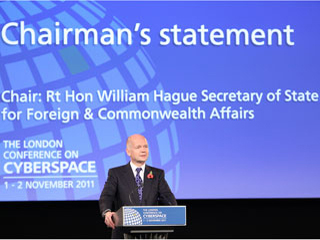Course Description
This course examines cyber dynamics and processes in international relations from different theoretical perspectives. It considers alternative theoretical and empirical frameworks consistent with characteristic features of cyberspace and emergent transformations at all levels of international interaction. Theories …
This course examines cyber dynamics and processes in international relations from different theoretical perspectives. It considers alternative theoretical and empirical frameworks consistent with characteristic features of cyberspace and emergent transformations at all levels of international interaction. Theories examined include realism and neorealism, institutionalism and liberalism, constructivism, and systems theory and lateral pressure. The course also highlights relevant features and proposes customized international relations theory for the cyber age.
Students taking the graduate version are expected to pursue the subject in greater depth through reading and individual research.
Course Info
Instructor
Departments
Learning Resource Types









